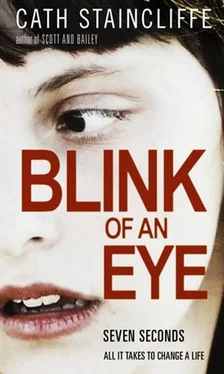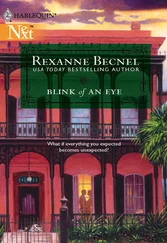He’s a bit geeky, up with all the social networking stuff, Facebook and Twitter and so on, but perhaps that’s my age showing. Nowadays that’s normal, isn’t it, not geeky?
Alex has travelled a lot more than any of us. His mother’s an air hostess and they get reductions on flights. I was green with envy at that. It was something we talked about a lot, Alex and I, with me picking up tips for my world tour with Phil. Alex raved about Vietnam and Japan. Told us we must look up his dad if we ever got to San Francisco.
Neither Suzanne nor Naomi took a gap year to see the world, which was all the rage at the time. Suzanne was too intent on getting a degree and finding a job; she had her next ten years mapped out, and bumming round the planet wasn’t on the itinerary. Naomi never really got the chance. She had to repeat the first year of sixth form when everything went pear-shaped, and just getting her back on track was the priority.
She was skint, anyway. The way things stood, if she had found a way to travel, I’d have been really worried that she wouldn’t cope with the pressures and temptations. Or that she’d end up in danger, getting mugged or raped, or suffer some terrible accident and we’d have to fly out and bring her home. My faith in her was at a low point then.
But by the time she and Alex got together, some four years later, she was back to her old self. Even stronger. Still scatty at times, still prone to impulses (or from another viewpoint, open to fresh experiences and opportunities). But not reckless, destructive. She’d grown up. At least we all thought that. I thought that. I trusted her again, I thought she’d come through.
Was I wrong? Not according to Alex. He had faith in her too.
Back in 1981, my parents weren’t best pleased to learn I was shacked up in Rusholme with a boy they’d never heard of. They weren’t particularly religious, but even so, the swinging sixties hadn’t really percolated through to the suburbs of Huddersfield.
‘I only hope you know what you’re doing,’ my mum said when I went home for the weekend and broke the news over Friday night’s fish supper.
‘What’s he do then, this Phil?’ asked my dad. He looked terribly serious and I had a moment’s anxiety that telling them had been the wrong thing to do.
‘He has a shop, a record shop, and he plays in a band.’
Dad gave a weary sigh.
‘We can’t all be accountants,’ I sniped. I had expected him to be more impressed that Phil had his own business.
‘What’s his turnover?’ he said.
‘I don’t know.’
‘So you’re living with him and you don’t know-’
‘Bruce,’ Mum chipped in.
‘We’ve got separate bank accounts,’ I said. ‘He doesn’t know what I earn either.’
‘Rum do,’ my dad muttered.
My mum was lively and outgoing; she liked nothing more than getting together with a group of friends. Didn’t matter what for, it was the company she relished, the chatter and friendship. She worked at C &A, the department store in town, and had firm friends there. She liked work, liked going there. Hated being idle. They were always organizing social events, nights out at the Talk of the Town in Batley, cheese and wine parties, trips to the cinema or the Alhambra in Bradford for a play, even the seaside, when they’d book a coach and bring the kids to Scarborough or Filey or Bridlington.
My dad had gone along with it – enjoyed it too. There was more to him than just being an accountant. He had been a dancer, amateur ballroom, which was where he met my mum. And he’d played piano too, as a teenager, in a little jazz combo. We had a piano at home, and occasionally he’d sit down and spin out a tune. Back then, I suppose most people did play an instrument, made their own entertainment.
I’d got my first job by the time I moved in with Phil, in a residential children’s home in Trafford. I worked funny shifts, doing some sleepovers, then having several days off, but it worked fine for Phil and me. In my free time I could go and see his band play, or we’d go and watch other people. Sometimes I helped out in the shop if it was busy. Saturdays were crazy: kids with their spending money eager to choose a record, people whose dole cheques went on music, the lucky ones in work with cash to flash. Phil had a Saturday girl, Amanda, who was into disco and kept up a running argument with him about how it was a superior musical form to punk rock.
The other members of the Blaggards used the flat like a second home, especially Petey, the drummer, who had troubles at home. He was from a big, brawling Irish family who seemed to get evicted every other week. Petey would turn up and stay with us for a couple of nights every so often. He never spoke to me directly about what happened, though Phil told me his father used to hit him.
Nights when I needed to go to bed because I was starting work early next morning, I’d have to turf Phil and Petey and Ged out into the kitchen so I could get to sleep. Later I’d hear Phil coming in, and sometimes Petey if he was crashing on the sofa. The pair of them stumbling about in the dark, whispering loudly or getting the giggles. ‘Be quiet!’ I’d hiss, but I couldn’t be mad for long and I always fell back to sleep without any trouble.
Stealing out quietly with my clothes in the morning to get dressed in the bathroom. Eating Weetabix with hot milk. Painting my eyes with rings of black and peacock blue. There was no dress code in that first job. My outlandish style was a useful talking point with some of the older kids. And I ignored the taunts and abuse I got from complete strangers. What else could I do?
The job was two bus rides away, but I’d got a Walkman for my graduation present and Phil made me mixed tapes, so I listened to those or read to pass the journey.
My dad was wary when he first met Phil that autumn at the start of the eighties, though Mum took to him straight away. Because he was a talker too, not shy or tongue-tied like some young men are.
My dad and Phil never really found much in common. The only exception was space travel. Anything about the space shuttle missions to the moon or exploring the stars and they went at it hammer and tongs. But if nothing much was happening in space there’d be chat about how the business was going, the latest changes to the rates or VAT and problems with distribution, and then things would peter out.
With my mum it was different. Phil and she would natter on about everything and nothing, which made it all the harder when she began to lose her faculties, when having a conversation became difficult and then impossible.
Carmel
We went round to Suzanne’s later that afternoon. We drove along Mottram Lane. The road was clear, but the mobile incident van remained, and the blackened trees and charred verge, the dark melted stains on the road were all there. The railings at the school were a gaudy riot of cellophane-wrapped flowers and soft toys.
That poor child. And her parents. Mixed with my sorrow I felt the sting of shame. My head was full of the accident, the moments Alex had recounted.
Jonty’s car was gone, and when Suzanne let us in I asked her where he was.
‘Belfast,’ she said. ‘They start filming tomorrow.’
I’d forgotten. ‘If you want us to stay, with Ollie and everything… You’ll need help. Or come to us?’
‘I’m fine,’ she said briskly. ‘Meals in the freezer and I’ve a laundry service booked.’ She looked amazing, given how tired she must be. Her blonde hair gleamed; it looked as though she’d got highlights, but it was natural.
‘Moral support, then.’
How had she turned out so strong, so resolutely independent? As a new parent of a three-week-old baby I’d felt completely at sea, even with the help of Phil and both our mothers on standby. The simplest task took hours; I was achy and leaky and weepy as well as experiencing bursts of profound happiness. Everything had felt so precious, so challenging.
Читать дальше












